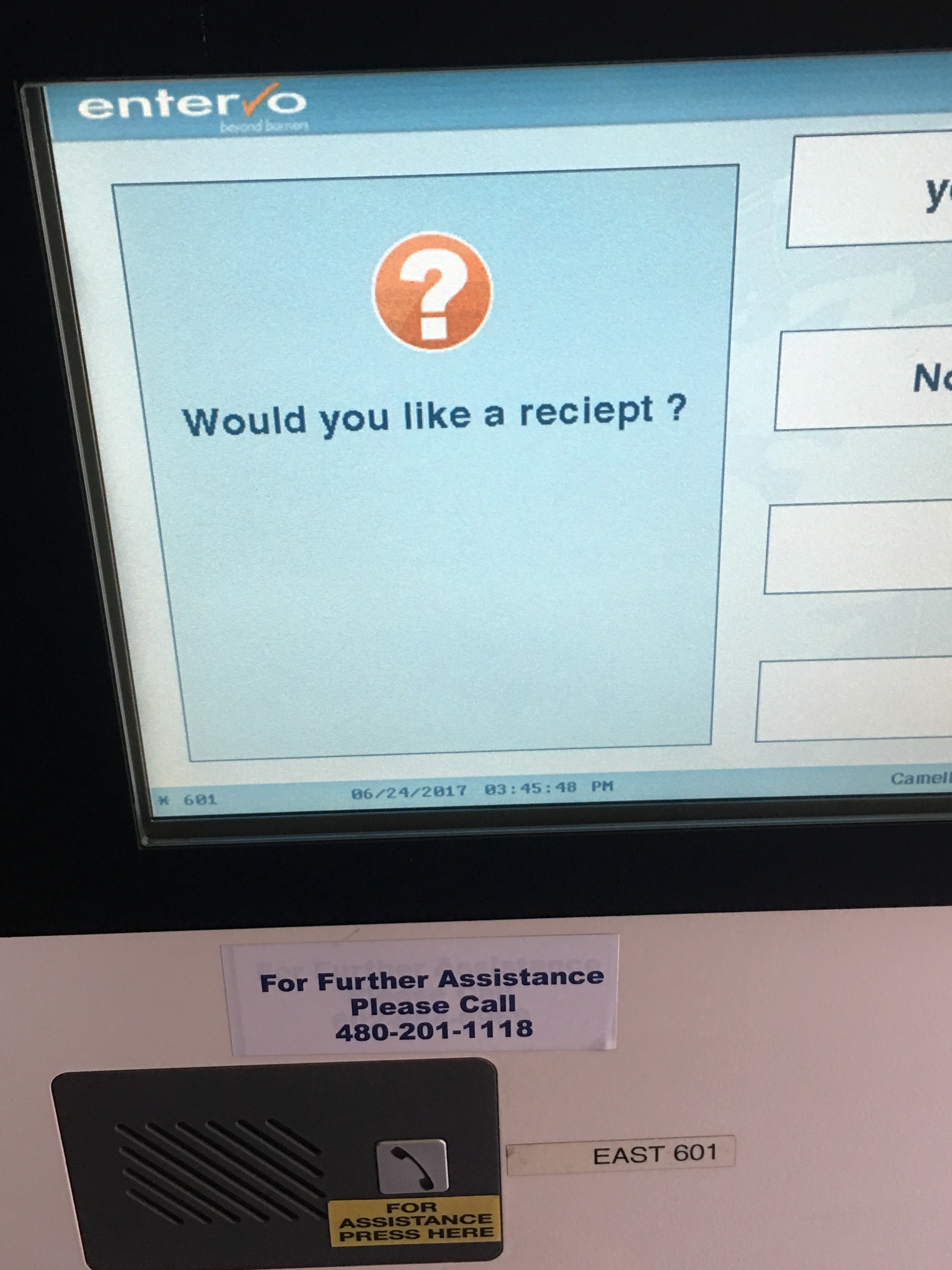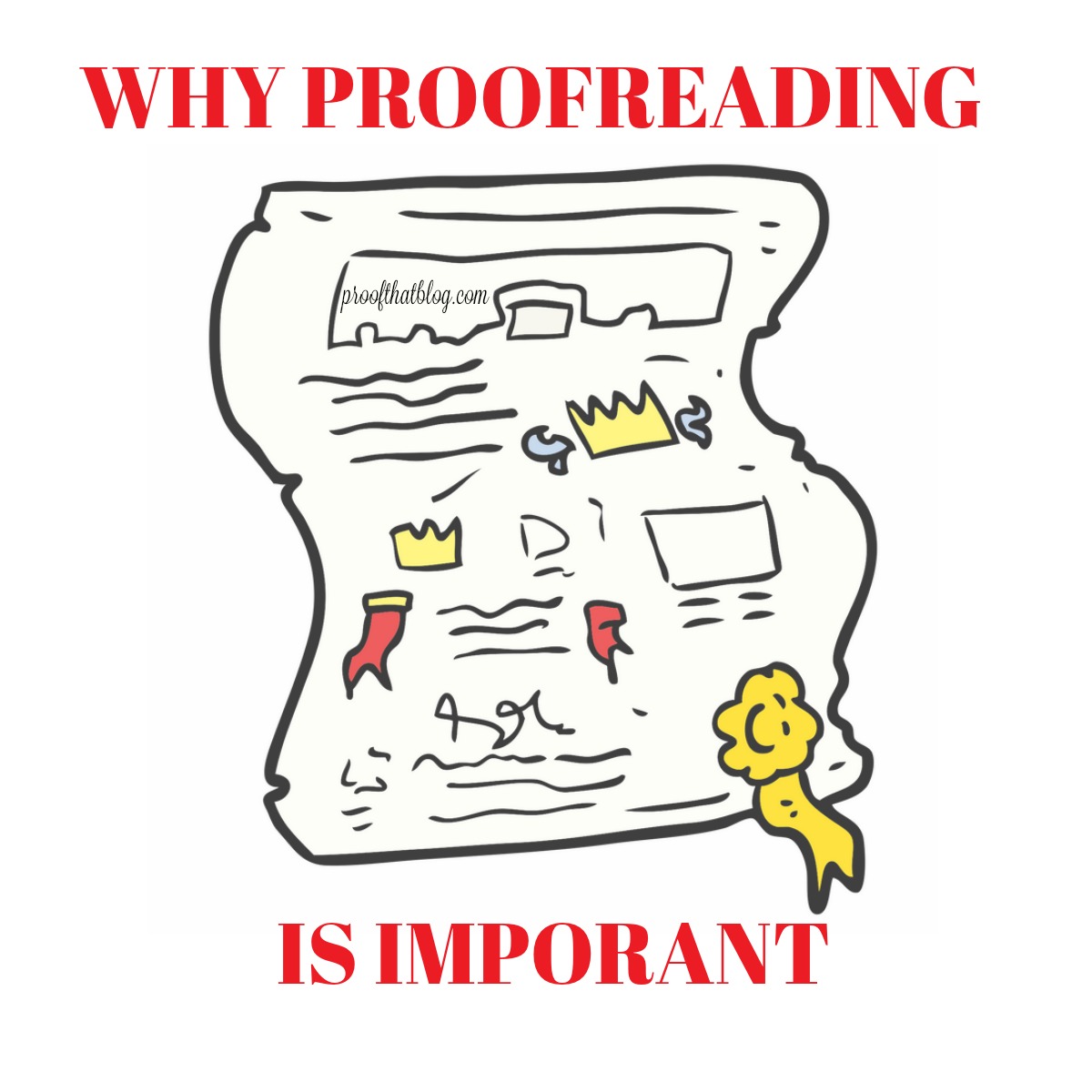My news station is keeping me in lots of material this week. Here is the headline for a story about the Roomba Vacuum. And that’s as in ONE “c,” not two. #azfamily #proofread #grammargiggle #proofthat

My news station is keeping me in lots of material this week. Here is the headline for a story about the Roomba Vacuum. And that’s as in ONE “c,” not two. #azfamily #proofread #grammargiggle #proofthat

 Proofreading your own work is one of the hardest jobs you have. You know what it is supposed to say, so that’s what your brain reads. If you are trying to proofread your own work, here are some tips:
Proofreading your own work is one of the hardest jobs you have. You know what it is supposed to say, so that’s what your brain reads. If you are trying to proofread your own work, here are some tips:
Most of all, keep learning. One good way is to read everything—newspapers, books, magazines. While there are lots of errors in those publications, there are also lots of good grammar usage. Another way is find websites and blogs that teach grammar and proofreading. Here are some of my recommendations—Proofreading Resources.
You should definitely proofread your work before you pass it on to the next person. Their job may well be to edit your work, but that doesn’t mean that their job is to clean it all up. You will impress them as a writer if they don’t have to correct obvious mistakes in your work. Take the time to prove that you are a good writer and know what you’re doing.
If you have tips for proofreading your own work, please share them in the comments below.
 It’s time for our new feature called “Confusing Words of the Week” where I take a set of two or three words that get confused and give you definitions and try to give you a memory trick to help you remember when to use which word. If you have words that confuse you, use Ask PTB or send an email to [email protected] and they may appear here soon!
It’s time for our new feature called “Confusing Words of the Week” where I take a set of two or three words that get confused and give you definitions and try to give you a memory trick to help you remember when to use which word. If you have words that confuse you, use Ask PTB or send an email to [email protected] and they may appear here soon!
This week’s words:
peak – the top. The peak of the mountain was covered with clouds.
peek – to look slyly at. He tried to peek at the cute girl in the corner. Just think about the double “e” as eyes. You’re looking at something with those eyes.
pique – resentment; to offend; to arouse. Jane piqued Sally’s interest in the movie coming out this week by telling her the back story.
piqué – cotton fabric.
I saw this one in a Facebook ad. “Steak” is food and “stake” is a rod in the ground to support something.

I’m going to start a new feature called “Confusing Words of the Week” where I take a set of two or three words that get confused and give you definitions and try to give you a memory trick to help you remember when to use which word. If you have words that confuse you, let me know and they may appear here soon!
 This week’s confusing words are accept and except:
This week’s confusing words are accept and except:
accept is to take or receive. He was ready to accept his new job duties. (He was ready to receive his new job duties.)
except is to exclude. He was ready for the new job duties except typing daily reports. (He was ready for all of his job duties excluding typing daily reports.)
The easiest way to remember which one to use is the EXcept is to EXclude. So if you want to EXclude something, you would say EXcept as in the following example:
I like all flavors of Life Savers EXCEPT lime.
That means if you take all of the flavors of Life Savers and exclude the lime ones, those are what I like.
If you are not going to EXclude something, you will accept it.
As I was paying to get out of a parking garage last weekend, I noticed this common misspelling. This word really DOES follow the “i before e except after c” rule.

The words lie or lay seem to cause problems for people. How do you know when to use which one? Let’s see if we can clear it up a little bit.

Lay (lay, laid, laying) means “to put” or “to place.” Because it’s a verb (action word) it requires an object to complete the meaning:
Lie (lie, lay, lain, lying) means “to recline, rest, or stay” or “to take a position of rest.” Unlike lay, which requires it, lie cannot take an object.
A way to remember the difference is that if you can replace the questionable lie or lay with place (or the correct version of it), then you need to use the correct version of lay. If it doesn’t, use the correct version of lie.
Another reminder hint might be if you are going to plAce something, then you are going to lAy it, but if you are going to rEst, you are going to liE.
I found this online. Not only is “fathers” misspelled, but that is really some special!

My cousin sent this one to me. Seems to me that if “intelligence” is part of the name of your event, you would figure out how to spell it correctly. This is particularly important if you are spending the money for such a big banner.

Some people think because they’ve written something and read along as they write, that’s good enough. Some people think they don’t have the time to proofread something that the author should have checked. Some people think they aren’t smart enough to proofread someone else’s work. And believe it or not, some people don’t think proofreading is important. Here is my take on that.

While an author could be a great writer, could have great content, and could tell a great story, if it is hard for people to read, they won’t. Not everyone is as interested in good grammar (or is a psycho–take your pick) as I am, but I do know people who can’t get through to the message the writer is trying to convey because of grammar errors. Once we see a few mistakes, we are obsessed with finding them all–all to the detriment of actually reading the substance of the message and, thus, the author’s reputation, in our minds, is not good.
Particularly in the legal field and in legal documents, accuracy is important. Many a time errors have made a difference in how a legal document was enforced, how property in an estate was distributed, and how a lawyer’s reputation with the court was tarnished. Opposing counsel love nothing more than to bring substantial errors in filed documents to the court’s attention. Particularly when quotations are incorrect. If opposing counsel files a document showing that your attorney filed something as a quotation which was not an exact quotation, your attorney not only has the embarrassment of having opposing counsel bring that up, but it becomes part of the public record (unless the file is sealed), and regardless of how open the judge would like to be, it has to change their perception of your attorney, your firm, and your client. Although the misstatement of the quotation could have totally been a error in retyping the quoted language, because no one checked it and fixed it, it could have a huge impact on your case.
Where there are errors in your writing, people sometimes have a hard time understanding your message. If people don’t understand your message, why are you writing?
Most of the people I know who are good at proofreading would love to help you. Not only does it give us the “first look” at your writing, but for most proofreaders, our mission is to help others and, perhaps, to teach others. If you know someone who is good at proofreading and you need some done, go ahead and ask. The worst thing that can happen is that they say “no” and then you’re at the same place you started. Just two caveats: don’t take advantage and don’t take them for granted. You can’t call hysterical and ask them to proofread something right now and you need it back immediately. They MAY help you that one time, but probably never again. Exercise grace.
If you pay attention to edits others make to your work, or you pay attention to proofreading lessons you could learn online (especially at a great website and blog like proofthatblog.com!), or you make an effort to be better, you learn something you didn’t know yesterday. That’s all anyone can ask for–to learn something new every day.
If you are the author, your writing reflects you. People who don’t know you get their impression of you from your writing. They could believe that you don’t care enough about your work to make sure it is accurate. If you are supposed to be finalizing documents for someone else in your office and don’t take the time to proofread it and to make sure it is accurate and looks good, then the person who receives it is getting a bad impression of your entire firm and everyone in it–even though only one person wrote the letter or document–some people associate your firm with dumb mistakes. This association could be worse if the mistake was not just dumb, but was more of a major error in a document filed with the court. It seems that with the amount of time spent authoring and editing something, you would want to be proud of your work. Otherwise, why would you waste your valuable time doing it?
All in all, you’ve spent the time and energy to write something you obviously want someone else to read, whether it is a blog post or an important legal document. You should be proud of your work so make it pretty, make it accurate, and make it grammatically correct.